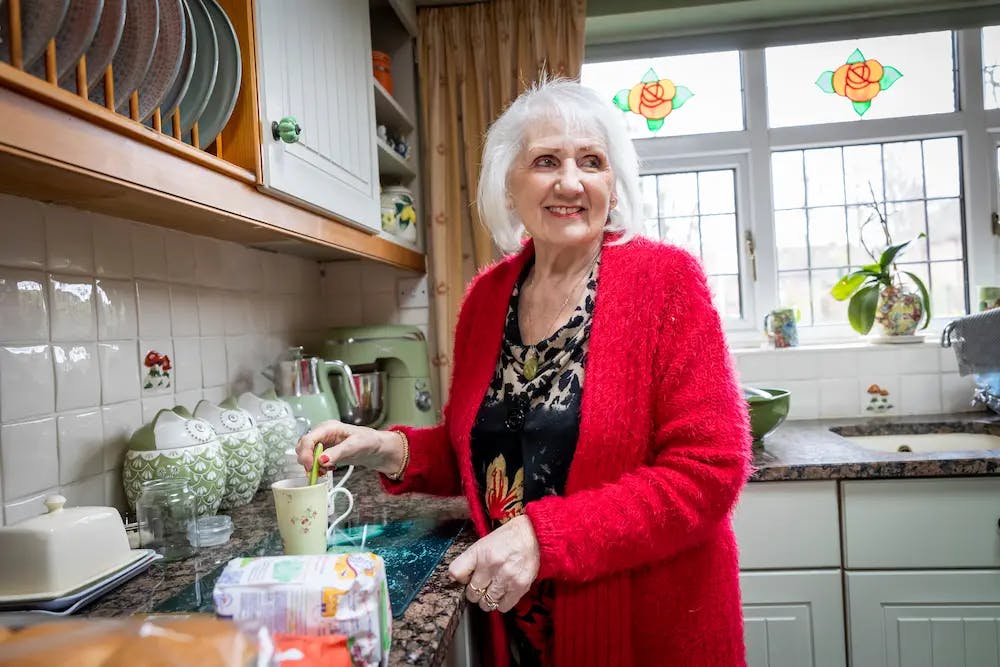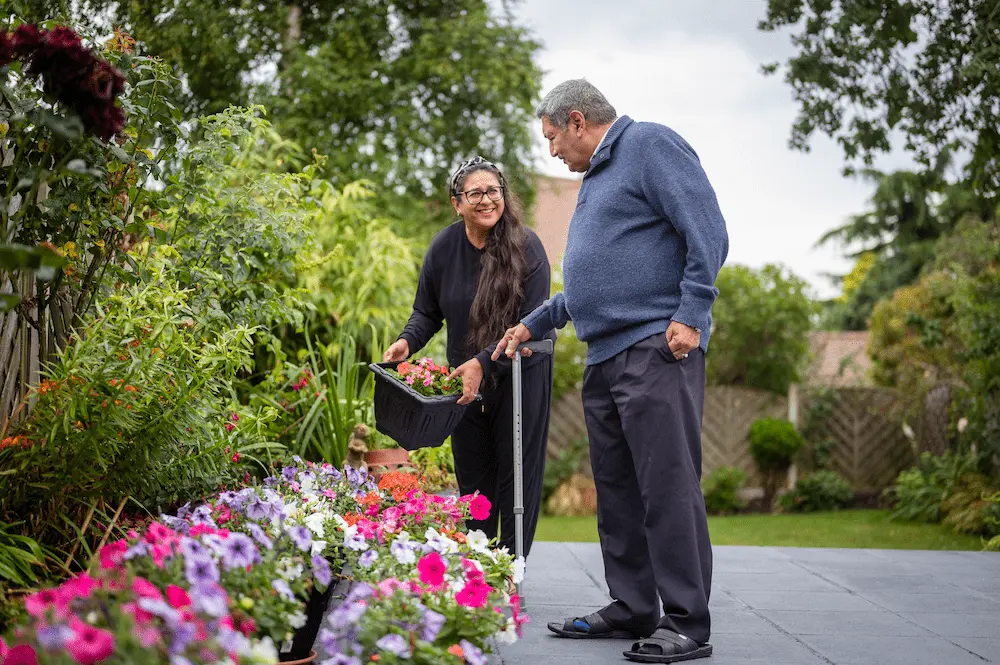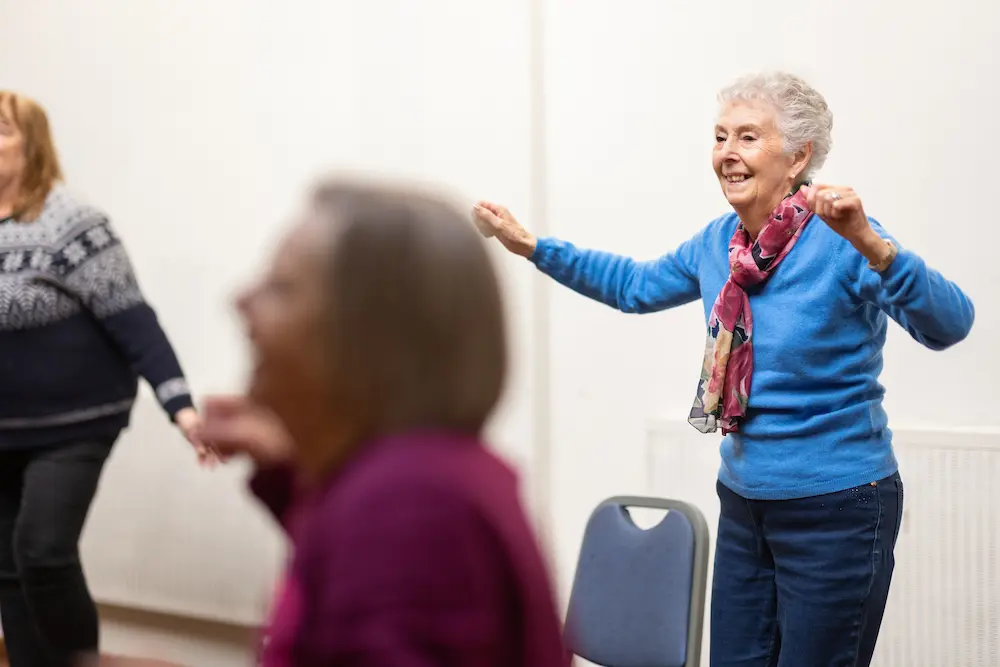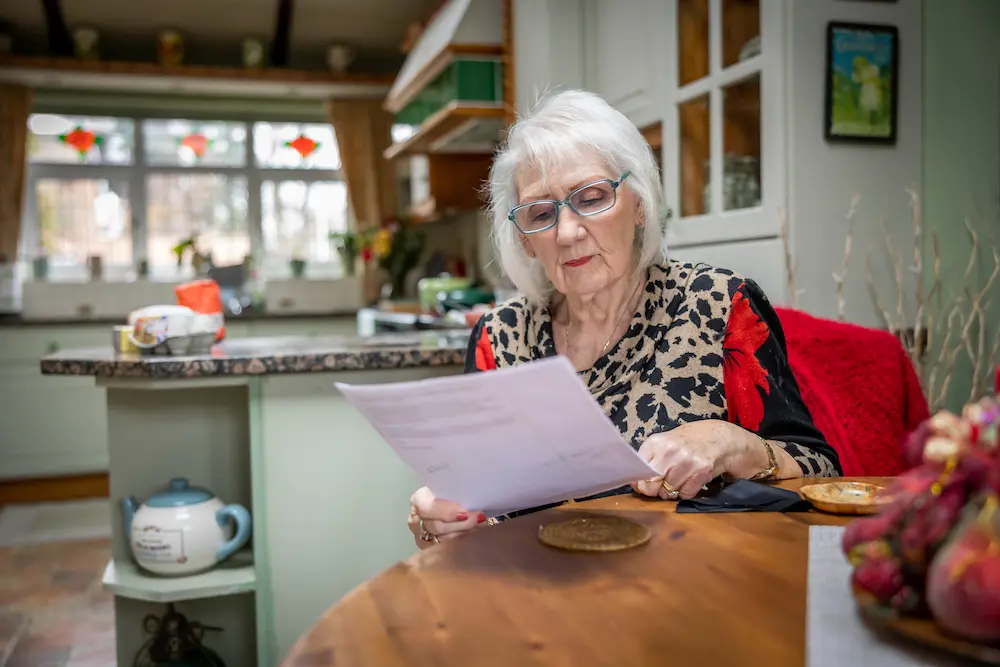Caring For Elderly Parents | Tips, Advice & How To Find Support

Estimated Reading Time: 15 minutes
In the UK, many people look after and provide essential care and support to a family member, such as one of their parents. Census data from 2021 shows that there are around five million unpaid carers in England and Wales alone. When combined with Scotland and Northern Ireland, this rises to 5.7 million.
Caring for an elderly parent can be both challenging and rewarding. You’ll want to provide your parents with the best care possible, which is why we’ve listed some of the things to consider when providing this care, alternatives if providing this care becomes too much, and the support available to you as a carer.
Arrange care at home
Browse the best home care in your area.
In this article:
- How to tell if your elderly loved one needs extra support
- Our checklist when caring for elderly parents
- What else should you consider when caring for elderly parents?
- Alternatives if caring for your elderly parents becomes too much
- Respite care
- What support is available to carers?
How To Tell If Your Elderly Loved One Needs Extra Support
Forgetfulness, changes to routine, reduced mobility and confusion are all signs that your elderly loved one may need support carrying out daily tasks like washing, dressing and meal preparation.
If you begin to notice that your loved one needs help, it’s important to quickly provide them with the care and support they need. Your parent may not want to admit they need support, which is understandable and normal behaviour.
There are lots of support options available, including care at home and within a care home setting, and you can browse these via our website.
Here are some of the signs to look out for in more detail:
Changes to their routine - Their routine and daily life could be affected if they’ve become less independent. They may find it more challenging to prepare and cook meals, keep their home clean and look after their personal hygiene
Changes to their health - Has their mobility decreased? They may find it more difficult to get from one place to another. Your parent may also seem more confused at times, with both of these things often leading to social isolation
Changing memory - While forgetfulness is common as we get older, more noticeable changes to memory could indicate the early stages of a cognitive condition such as dementia
Often, the best way to tell if your elderly loved one needs extra support is by speaking directly to them. Although opening up and sharing their challenges can be tricky, these are really important conversations to have.
Our Checklist When Caring For Elderly Parents
Consider your loved one’s needs
Understanding your parent’s physical and emotional needs, along with any medical conditions they have, will make it easier to figure out the level of assistance they require.
You should openly and honestly communicate with your parent about their needs, preferences and how they want to receive care. They should be involved in the care-giving process wherever possible.
Think about the following things when considering your loved one’s care needs:
The care they need - What care do they require, and how regularly? Can this be provided by you or other family members, or is a medical professional needed, such as to administer certain medications?
Their home - Does it need to be adapted, or is it fine as it currently is? Can your loved one continue living safely and independently in their home? Is equipment such as a personal elderly alarm needed?
Set a regular routine
You should think about your loved one’s routine, including:
- When do they want to get up and go to bed?
- When do they want to eat?
- What times are best for providing personal care, such as help with washing and bathing?
Evaluate their medical needs and manage medical appointments
Can you provide the care your loved one requires, or do they need access to more specialist forms of care? If so, can they access these services themselves, or do they need help? Think about whether you’re able to arrange this care for them.
Your elderly parent may have a specific medical condition they need care for. If this is the case, you should organise a meeting with their GP to learn more about the care they require.
You should keep track of your elderly parent’s medical appointments and any medication or treatment they require. Coordinating with healthcare providers and medical professionals will ensure they receive regular check-ups and specialist care if needed.
Look after your elderly loved one’s finances
Providing care to an older adult costs money. It could incur extra costs such as:
- Home modifications
- Any other equipment or supplies needed for their care
- The cost of any medical professionals
Understanding these costs will give you a better idea of what your loved one requires, helping you to be better prepared.
It’s worth considering how much money your loved one has. If their savings and income fall under a certain amount, they could be eligible for local authority funding when paying for additional care, such as home care. Whether they’re eligible and the care they qualify for can be determined by a care needs assessment and financial assessment.
Help with household chores
Older adults often need assistance with household chores. Helping your elderly parent keep on top of these tasks will ensure they have a safe environment to live in. Helping them look after their home will also help maintain a sense of independence, which is vital to emotional wellbeing.

Everyday household tasks that older adults need help with include:
- Cleaning different areas such as the bathroom, kitchen, and their bedroom
- Preparing and cooking meals
- Washing, drying and ironing clothes
- Rearranging furniture to make the home more accessible
- Admin tasks, such as handling or paying bills
Moving and handling
If your elderly parent has an illness, disability or other medical condition, their mobility may be limited. They may need help with:
- Getting in and out of bed
- Having their position changed when in bed
- Personal hygiene (such as bathing, showering or using the toilet)
- Getting from one place to another
If your loved one regularly needs moving, it’s important to ensure you do so safely, both for your benefit and theirs. Some local councils run free training courses about safely moving people and assisting with mobility. They may also provide free equipment like hoists and stand aids to make moving your elderly loved one easier. Find your local council here.
If moving your loved one, remember to lift as smoothly as you can, never lift above shoulder height, keep your feet stable, keep your back straight and bend your knees, rather than lifting with your back.
We can help you find the best home carer for you or your loved one’s care needs, including domiciliary (hourly) and live-in carers. Request a free list of home care agencies, and our care experts will match you with suitable carers with availability in your local area.
Ensure they get the proper nutrition and stay hydrated
Eating well is essential for everyone, but especially older adults. Good nutrition will help ward off certain conditions such as osteoporosis, high blood pressure, heart disease and type 2 diabetes.
A balanced diet for your elderly loved one should include natural foods like fruits, vegetables, whole grain products, dairy and protein.
Try to avoid overly processed foods and those high in salt.
You can either prepare nutritious meals yourself, or arrange for meal delivery services if needed. There are many meal delivery services for older adults, with some of the most popular including Parsley Box, Wiltshire Farm Foods and Oakhouse Foods.
Hydration for older adults is vital as well. You can avoid your elderly loved one becoming dehydrated by ensuring they always have a range of drinks to choose from. They should also avoid high-caffeine or sugary drinks and stay cool when it’s hot outside. Flavoured water can be a great alternative if your parent doesn’t enjoy drinking regular water.
Are they exercising?
The NHS says that adults aged 65 and over should:
- Be physically active every day, even if this is just light activity such as walking a short distance
- Spend less time sitting or lying down, so they have fewer lengthy periods of inactivity
- Do activities to improve balance, flexibility or strength for two days a week or more
To help, you can encourage your elderly parent to participate in regular physical activity suited to their ability and fitness level. You could go on walks together, or encourage them to join an exercise class for over 60s. We’ve also created a guide listing gentle exercises for older adults.

Help them stay socially connected
You should encourage your elderly loved one to stay connected within their social network. Keeping in touch with friends will work wonders for their mental health and emotional wellbeing.
You might need to provide transport for your elderly parents so they can meet their friends.
Many events and activities are available to older adults, such as coffee mornings, quizzes and walking groups.
To give you a better idea, we’ve created articles highlighting various social and activity-based opportunities for older adults:
- Social groups for over 50s
- Exercise classes for over 60s
- Walking groups for over 50s
- Walking football
Providing emotional support and companionship to your elderly parent will help combat feelings of loneliness or isolation. Wherever possible, the two of you and other family members or friends can spend quality time together, including doing activities they enjoy.
Involve your parents wherever possible
Try to involve your parents in decisions relating to their care wherever possible. This will help them feel empowered while promoting independence in care.
After all, your parents will likely understand the care they need better than anyone else.
These conversations might not be easy, especially if your parent doesn’t want to acknowledge growing care needs, but they’re still important to have.
Take care of yourself
If you don’t properly look after yourself, you’ll find it challenging to care for others. That’s why taking proper care of your needs is so important. In the long run, overworking can lead to burnout and exhaustion.
Carers UK has created several resources to ensure carers can get the emotional support they need:
What Else Should You Consider When Caring For Elderly Parents?
Is their home safe, and are adaptations needed?
Is your loved one able to continue living safely in their home? If not, they may require home adaptations such as non-slip mats or flooring, grab rails, stair rails, adequate lighting, widened doorways, a stair lift or lowered kitchen worktops.
You may also want to consider a medical alert system in case of emergencies.
Depending on how much these adaptations and installations will cost, you could be eligible for a disabled facilities grant from your local council. This is a type of funding that aims to make daily life easier for less able people by modifying their homes to make them safer.
How far away do you live?
How easily will you or other family members be able to visit your elderly parents? If you live a long distance from them, regular visits to provide care may be more difficult.
Do they require transportation to stay mobile?
How easily can your elderly loved one move around, and can they drive or use public transport by themselves?
This will determine whether they need transportation from you, another family member or a friend to get from point A to point B.
For example, they may need assistance getting to and from the shops or attending medical appointments.
Being realistic about the care you can provide and sharing caregiving responsibilities
If you find caring for an elderly parent by yourself challenging, consider whether anyone else can help and share this responsibility. This could be another family member (such as a sibling), a close friend or your spouse or partner.
Sharing this responsibility will ease the load for everyone, meaning a better standard of care will be given.
Even if another family member can’t provide hands-on support, they might be able to help in other ways, such as dealing with administrative tasks like handling paperwork and financial documents.
There may be other people who can pitch in as well, such as any neighbours who can pop around to your loved one’s house and check on them whenever required.

Alternatives If Caring For Your Elderly Parents Becomes Too Much
If caring for your elderly parents becomes unmanageable, it might be a good idea to seek out alternative types of care for your loved one.
There are lots of places where they can receive additional care, including in their own home and in a purpose-built environment such as a care home. Dignified and compassionate care, such as companionship and personal care, can be provided in these settings.
How to start looking for care when the time is right
If you and your elderly parent think they may require professional care, there are a few key things to consider. This includes the type of care they need, their budget, the location they wish to receive care and their preferred setting (such as in a care home or at home).
If you’re unsure of the most suitable kind of care, a care needs assessment can help. This is a free assessment by your loved one’s local council that looks at their care needs to determine what help is required. A financial assessment follows this, which works out the total value of their savings (and assets if they go into a care home) to see if they’ll need to pay for their own care or qualify for local authority funding.
You can use Lottie to ease your care search. We list the country’s best care homes and have also partnered with the largest home care agencies in the UK, covering several care types.
Respite Care Can Help You Take a Much-Needed Break
Respite care is a short-term form of care. This often lasts for a few weeks, giving you or anybody else providing care the perfect opportunity to take a well-earned break from your caregiving responsibilities. Taking these breaks prevents caregiver burnout and allows you to prioritise your own wellbeing, whether that’s through self-care, hobbies or relaxation.
You could be temporarily unavailable, so you need someone else to care for your loved one during this period.
Respite care is mostly available through within a care home and through home care.
Respite care homes
Respite care is most commonly provided in a respite care home - which aims to be a home-from-home environment for your loved one where all their personal care needs are looked after. Here, short-term relief is given to caregivers.
A respite care home’s team will discuss your elderly parent’s care needs and their personal preferences (including hobbies and the food they enjoy eating) so you can be sure they’ll receive a tailored, professional experience.

People often stay in a respite care home for one or two weeks, but this can be slightly longer. Each home will have a minimum respite policy. These typically start from one or two weeks, but can be as long as four weeks.
A limited number of care homes offering respite care take bookings, which can be helpful when planning ahead. For example, if you know you’ll be away on particular dates, you can match these dates with the availability of respite homes near you.
Check out the respite care homes listed through Lottie today.
Respite care at home
Through respite care at home, your elderly loved one will be looked after within their home, often for a couple of weeks.
Respite home care is often needed while somebody recovers from an illness or injury.
Usually, a respite carer will visit your loved one throughout the week to provide whatever care and support they need. They could also temporarily move in with them (this is known as live-in care).
Many of the home care agencies we’re partnered with offer respite home care, including services such as personal care, companionship and assistance with household tasks.
What Support Is Available To Carers?
Getting a carer’s assessment
A carer’s assessment is aimed at people aged 18 or older who look after somebody who is disabled, elderly or ill. This assessment will determine whether you’re classed as a carer and, if so, what support is available.
During the assessment, you’ll be asked how you cope with caring, its effect on you, and your lifestyle.
Your local council provides this assessment, and it is free of charge.
You should be offered a carer’s assessment by the local council’s adult social services department of the person you care for. If you haven’t been offered one, contact adult social services at the local council to arrange an assessment.
Carer benefits
As a carer, you could be eligible for a few different benefits. These include:
- Carer’s Allowance
- Carer’s Credit
- The Carer’s Element of Universal Credit
- Carer Premium
For further information, we have an article listing the benefits you can claim as a carer in greater detail.
Carer discounts
There are lots of discounts for people who provide care.
Some of these discounts include free and discounted days out for carers and the people they care for, such as cinema and theatre tickets, zoos, National Trust properties, museums, RHS Gardens and more.
There are also sites with a huge range of discounts aimed specifically at carers.
Check out our carer discounts article for more information.
We’re on a mission to support individuals and their loved ones throughout each stage of their later living journey. For more information, check out everything Lottie has to offer.
Frequently Asked Questions
Can I get paid to care for my elderly parents?
If you care for somebody for 35 hours or more a week who claims Attendance Allowance, Disability Living Allowance or Personal Independence Payment, you can claim Carer’s Allowance.
You don’t have to live with the person you care for to be eligible for this benefit.
If eligible, you’ll get £81.90 a week. This can be paid every week or every four weeks. The weekly Carer’s Allowance rate increased by 6.7% in April 2024, from £76.75. The weekly earnings threshold also increased, from £139 to £151.
How often should you visit an elderly parent?
How often you should visit an elderly parent will vary from family to family, depending on factors such as how far away you live and how close you are to them.
As a starting point, try working out a schedule which feels natural and manageable for both of you, such as once a week. Depending on how this goes, you could try visiting your elderly loved one more or less often.
You should also ask your parent how often they’d like to be visited, as it’s important to consider their opinion.
What should caregivers not do?
There are a few things you shouldn’t do as a caregiver, including:
- Not respecting the privacy of the person you’re caring for
- Not going to a medical expert such as a GP if you think the person you’re caring for might require specialist medical care
- Overstep the mark when providing care
- Feel as though you can do everything yourself



